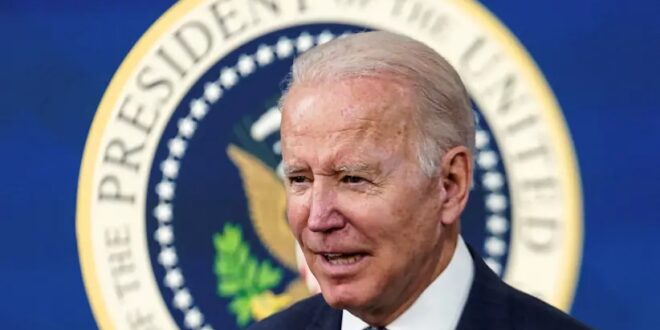This does not mean that Israel should not do what it can to try and impact the outcome of the talks. It should. But it needs to have realistic expectations.
With nuclear talks set to renew in Vienna this week, Israel has spent the last few days engaged in a diplomatic blitz aimed at getting the world on its side.
On Monday, Foreign Minister Yair Lapid will meet with British Prime Minister Boris Johnson and will then fly to Paris for talks with French President Emmanuel Macron. He will lobby both leaders to not be simple bystanders in the P5+1 talks that will take place in Vienna and to not just follow the American lead. Be aggressive, Lapid will urge both and make sure that the Iranians do not get what they want.
An illustration of how serious the parties are taking these talks is in Johnson’s willingness to even meet with Lapid. The British prime minister met last week with President Isaac Herzog for a conversation about Iran and the issue was also one of the main focuses of the bilateral meeting he held with Prime Minister Naftali Bennett on the sidelines of the COP26 climate summit in Glasgow earlier this month. Three meetings with three different Israeli leaders in the span of a month is not something to be taken for granted.
Next week, Defense Minister Benny Gantz will travel to the United States where he too will bring up the matter with American officials as will Bennett, on his visit to the United Arab Emirates, likely to take place by the end of December.
The chances that this diplomatic blitz bears fruit though are slim. The world – and particularly the administration of US President Joe Biden – is bent on reaching a new deal with the Iranians, even if it means one that has less restrictions and assurances than the JCPOA brokered by the Obama administration in 2015 and which Donald Trump withdrew from only three years later.
This does not mean that Israel should not do what it can to try and impact the outcome of the talks. It should. But it needs to have realistic expectations and more importantly, it needs to ensure that it doesn’t let politics get in the way.
The country received a taste of politics last week when Bennett spoke at Reichman University and said that Israel would not see itself bound by a new deal if it did not stop Iran’s race to a bomb. “Even if there is a return to an agreement [with Iran], Israel is not a party to it – is not obligated by it,” said the prime minister.
What Bennett also did was slam his predecessor, Benjamin Netanyahu. While it was not the first time that Bennett attacked Netanyahu for mishandling the Iranian threat, it is not immediately clear what benefit it brings the country right now. Israel, Bennett said, fell asleep after the 2015 deal and that, he promised, will not repeat itself.
Bennett was referring to what IDF sources have already confirmed – after the 2015 deal was finalized, Israel stopped its preparations for a military operation against Iran and those capabilities fell to the side. Israel is now in the midst of rebuilding the capabilities, but defense officials have said that the work will take at least a year.
Explaining that Israel will retain a military option is important and will hopefully serve as something of a deterrent against Iran as well as motivation for the nations participating in the talks to ensure that the deal is stronger and longer so that Israel will not have to act, something they definitely don’t want to see.
Attacking Netanyahu and playing politics with Iran is something else and while it might bring some political points, it doesn’t do much to help the country boost its deterrence against Iran.
What value, for example, is there in Iran knowing that Israel fell asleep – as Bennett put it – after the 2015 deal? Does it help Israel when top IDF officers openly talk about how there is no viable military option currently available?
Iran’s nuclear program has long been a challenge for the world and particularly the State of Israel, which is openly threatened and attacked by the Islamic Republic and its proxies. But to confront it appropriately, Israel needs to focus on policy, not politics.
 Eurasia Press & News
Eurasia Press & News




